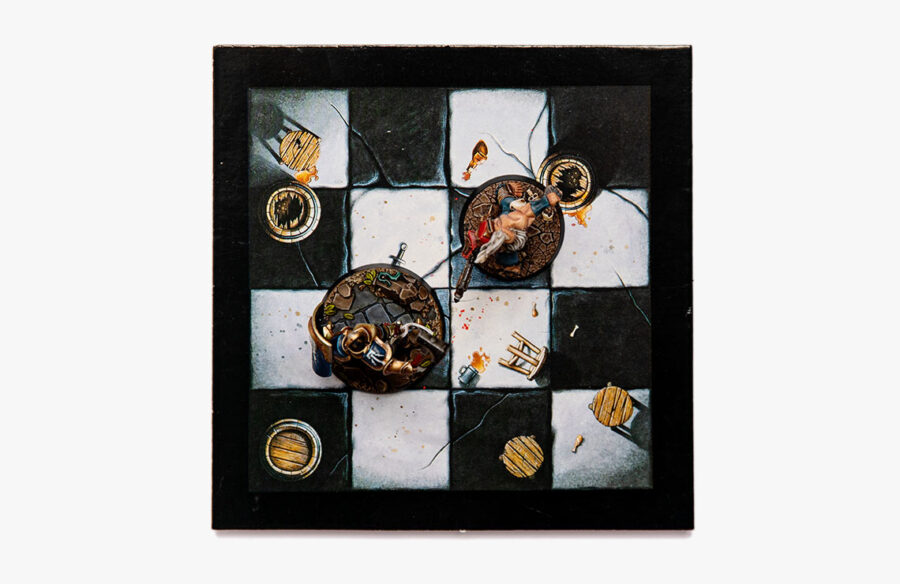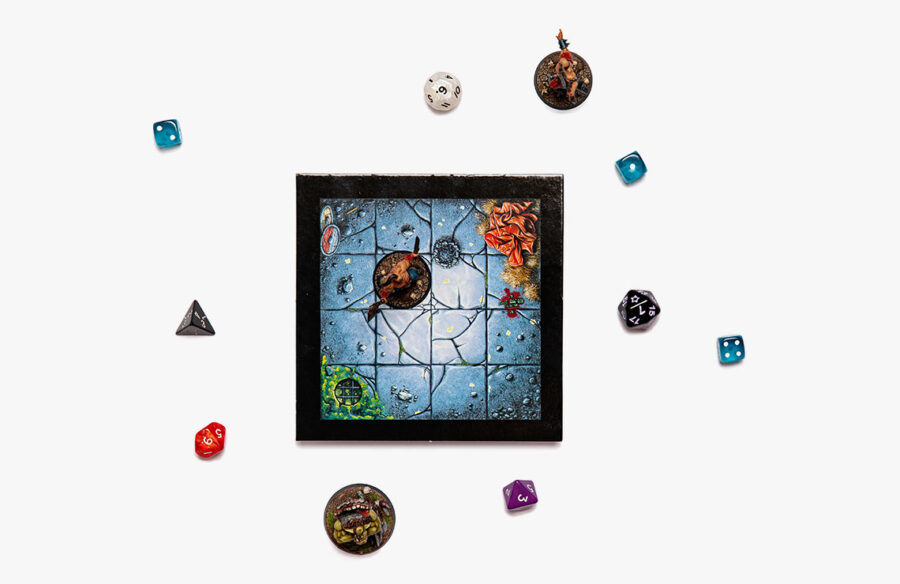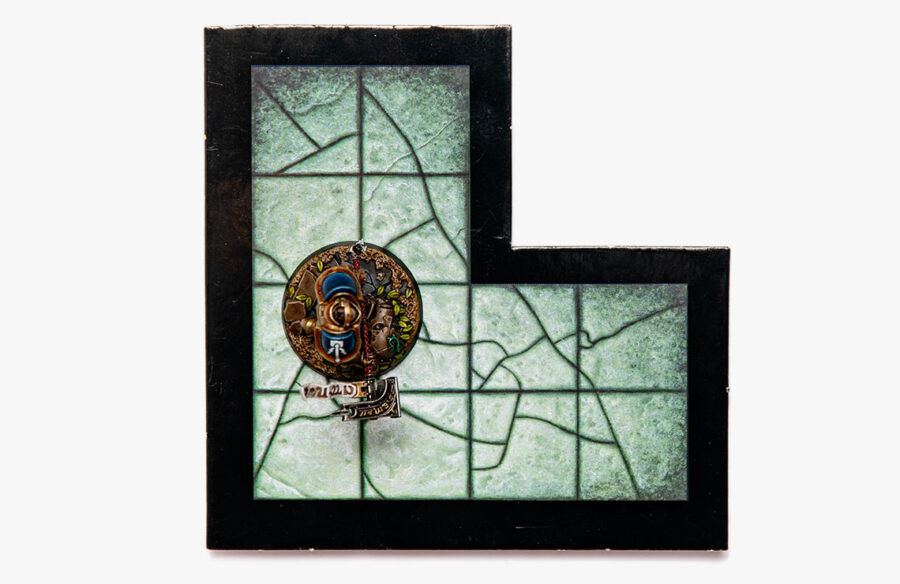
3 Lessons We Can Learn from Orcs
When the futures we imagine confront our logic and business models – it might help to look at gaming
to break free from the gravity of the present.
The full moon hangs over the horizon, and a light rain begins to fall from heavy clouds. Your boots squelch in the mud as the pitter-patter of raindrops lulls you into a false sense of safety. A monstrous howl breaks the calm night, followed by several more, echoing from the forest around you. Whatever creatures lurk in the darkness have you and your companions surrounded. What do you do?
Over the last decade successful TV shows like Game of Thrones and Stranger Things, as well as live-streaming platforms like Twitch, have brought tabletop role playing games (TTRPGs) out of the basement and into the mainstream, as exemplified by the commercially successful Dungeons and Dragons which has developed a cult-like following.
Propelled by collaborative storytelling, TTRPGs share three characteristics. First, players take on the role of imagined characters, each with their own histories, motivations, strengths and weaknesses. Second, characters inhabit a fictional setting with its own internal logic, covering everything from medieval fantasy to space opera. Finally, these games use elements of chance and improvisation to resolve conflicts and create consequences of the characters’ actions.
Players often use their characters to explore parts of themselves or experience things to which they aren’t normally exposed. This can be an incredibly energising experience; imagine what it would feel like to actually save the world with your friends? Other times, this experience can be quite personal. In the game “14 Days”, players take on the role of someone living with severe migraines, and experience what the unpredictability of chronic pain means for them over the course of the two-week game. Simply using narrative and imagination can take us one step closer to empathy and experience.
What sets these games apart from their digital cousins is the near-complete freedom they offer. Not bound by the limitations of a script or computer program, the question “what do you do?” gives players the chance to take unconventional paths that they would otherwise miss. It builds a sense of agency and allows stories to unfold in emergent ways. Unconventional strategies can reward unique narrative turns.
In many games, this freedom is tempered by a Game Master (GM), who acts as referee of sorts, describing the context the characters are in, acting as any people they may meet in the world, and adjudicating the results when the outcome of the characters’ actions is uncertain. With multiple players making individual and collective decisions, the GM helps maintain the tone and direction of the narrative, providing believable consequences for the characters’ actions. Collaborative storytelling, meaningful cause and effect, and emergent plot twists are what makes these games unique.
While it has a very different goal, Strategic Foresight is a discipline that follows a very similar logic to TTRPGs. Used by leading companies and public institutions worldwide, including here at Schibsted by our Tech Experiments team, Strategic Foresight helps us imagine a range of possible futures and develop robust, forward-looking strategies in times of uncertainty. Like TTRPGs, it uses fictional, collaborative scenarios to explore different actions and imagine possible outcomes.
The process follows four core steps. First, we scan the present for signals of change, including market trends, news stories, and user behaviour. Second, we use these signals to identify trends affecting our organisation. Next, we extrapolate and create future scenarios, imagining our place in them. Finally, we identify and prioritise actions we can take today to move us towards our preferred future.
This can be a powerful approach to anticipating future trends, risks, and opportunities. It can also be an unsettling one. When the futures we imagine confront our logic and business models, how can we break ourselves free from the gravity of the present and imagine different paths going forward? This is where Strategic Foresight can draw lessons from TTRPGs.
Make it experimental
Part of what sets role-playing games apart from books, films or computer games is the feeling that you and your friends were actually there, living the story, even if it is fantastic and unbelievable. When working with Strategic Foresight, paradigm-shifting futures can be hard to believe; if we don’t have parallel experiences to draw on, how can we imagine what that future might feel like? This is where we can use design and storytelling to simulate those experiences. Building prototypes of future products and services that we can touch and experience can bridge the gap and make challenging futures more believable.
Make it divergent
Engaging stories are full of choice, conflict, failure and success. Role playing games embrace this and allow us to find opportunities we might have disregarded otherwise. In Strategic Foresight processes, it can be tempting to focus on the most preferable or probable future we identify. If we give ourselves the chance, these processes also provide low-investment, low-risk opportunities to explore novel paths and alternative strategies. This kind of divergent thinking helps challenge our approach to business-as-usual, adapt to unpredictable events and identify novel areas for exploration and investment.
Make it emergent
Collaborative storytelling means that no one at the table knows what will happen next. It builds excitement and a sense of ownership, and the collective choices of the players can lead to truly unpredictable twists. In parallel, one of the main challenges for Strategic Foresight is preparing organisations for unpredictable, so-called ‘Black Swan’ events, like global pandemics, as well as unforeseen areas of opportunity, like NFTs. To foster emergent thinking, Strategic Foresight processes should involve a diverse range of participants from across the organisation in a safe space for open discussion. Truly novel ideas can arise only when a mix of experiences, expertise and perspectives have a seat at the table and are given the chance to imagine together.

Christopher Pearsell-Ross
UX Designer
Years in Schibsted: 3 months


